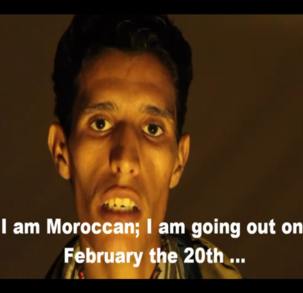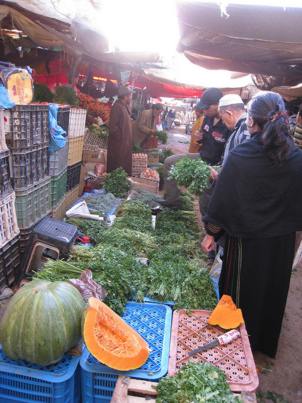|
Morocco Politics | Travel - Leisure | Economy - Development Travel market tense ahead of Morocco protests
Only one week ago, Morocco as a tourist destination had reasons to celebrate the riots and revolutions in Tunisia and Egypt. As the Egyptian and Tunisian destinations were collapsing, travel agents all over Europe were offering Morocco and the Canary Islands as alternatives for cancelled trips.
The blogger, fond of the Moroccan destination, also tries to give an honest answer to the question. "The short answer to the question about Morocco being safe is YES. But in light of the revolutionary spirit coursing through the Arab world, we need to take a look again. Can tranquil, scenic, touristic, ever more cosmopolitan Morocco go the way of Tunisia and Egypt? Short answer is the same: YES!" Even worse for the Moroccan destination, travel agents throughout Europe have now started giving potential tourists the same answer as Mr Hagerty. In Germany, for example, travel agent Frauke Gräber told the 'Mindener Tageblatt' - in an article titled "Journey into the insecure" - that travel to North Africa by and large were now seen as risky. Even among tour operators, the tension is high and rising. Yves Hoffmann, spokesman of Luxairtours, told the daily 'Volksfreund' that until recently, especially French customers had chosen Morocco, but the market in France was now quickly growing sceptical towards the destination. Even Mr Hoffmann, he told the Luxembourgian newspaper, could, "because of the widening unrest in these countries, not recommend Morocco with a good conscience." Bookings for the entire North African region were dropping drastically. In Morocco, the new trend is already noted. Representatives of the country's tourism industry today told the 'Maghreb Emergent' magazine that the country now was "registering a large number of cancellations." French tour operators confirmed that "the political atmosphere in the region is reassuring tourists." The short wave of extra bookings for Moroccan destinations has ended. Now, tour operators report, the Canary Islands, Madeira, Cape Verde Turkey are benefiting from the North African political unrest. For Morocco, these bad news could only mean pouring gasoline on the fire. The tourism sector is among the country's main employers, and if the trend of cancellations is strengthened, rising unemployment would mobilise even more protesters. By staff writers © afrol News - Create an e-mail alert for Morocco news - Create an e-mail alert for Politics news - Create an e-mail alert for Travel - Leisure news - Create an e-mail alert for Economy - Development news
On the Afrol News front page now
|
front page
| news
| countries
| archive
| currencies
| news alerts login
| about afrol News
| contact
| advertise
| español
©
afrol News.
Reproducing or buying afrol News' articles.
You can contact us at mail@afrol.com









